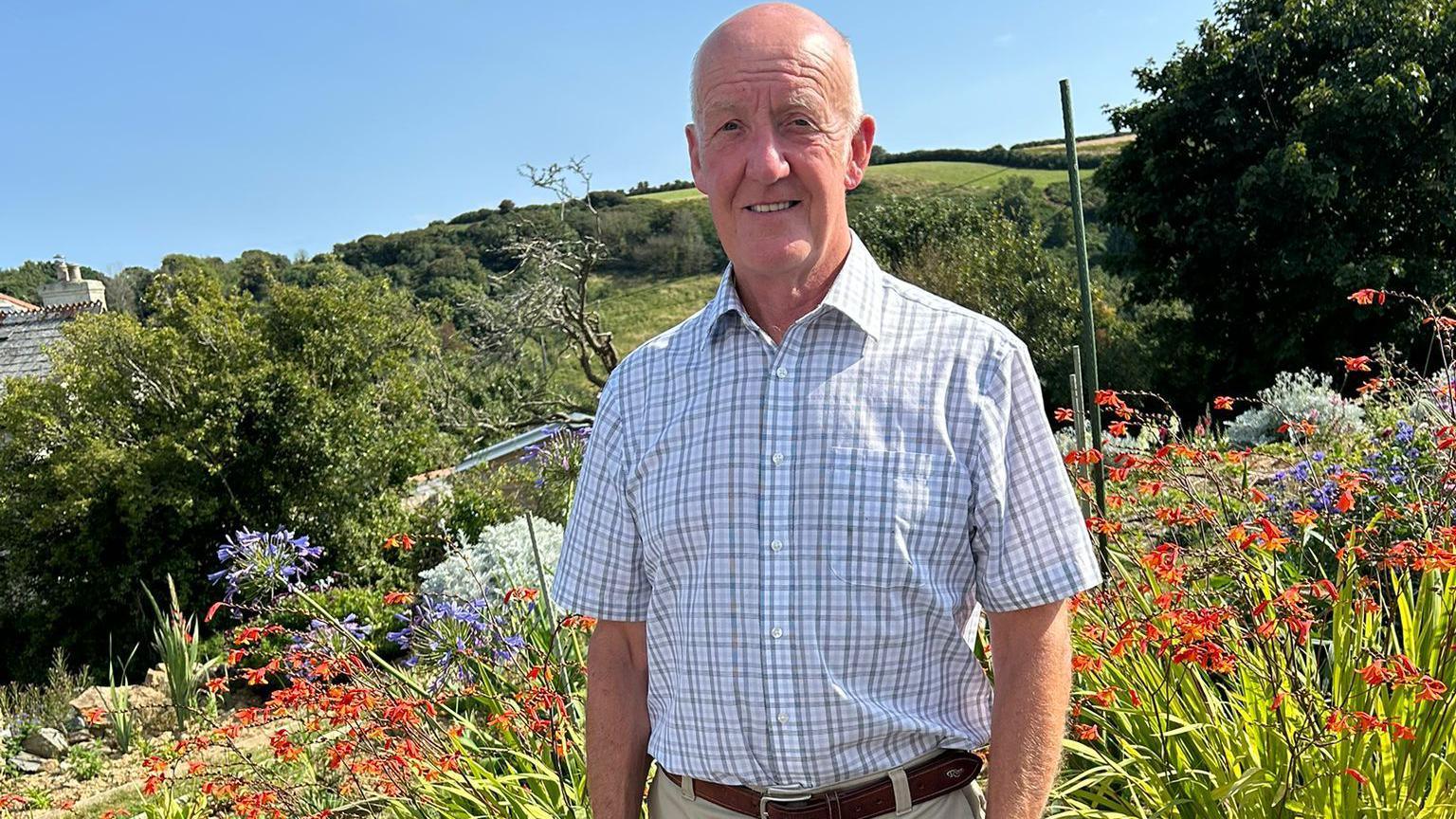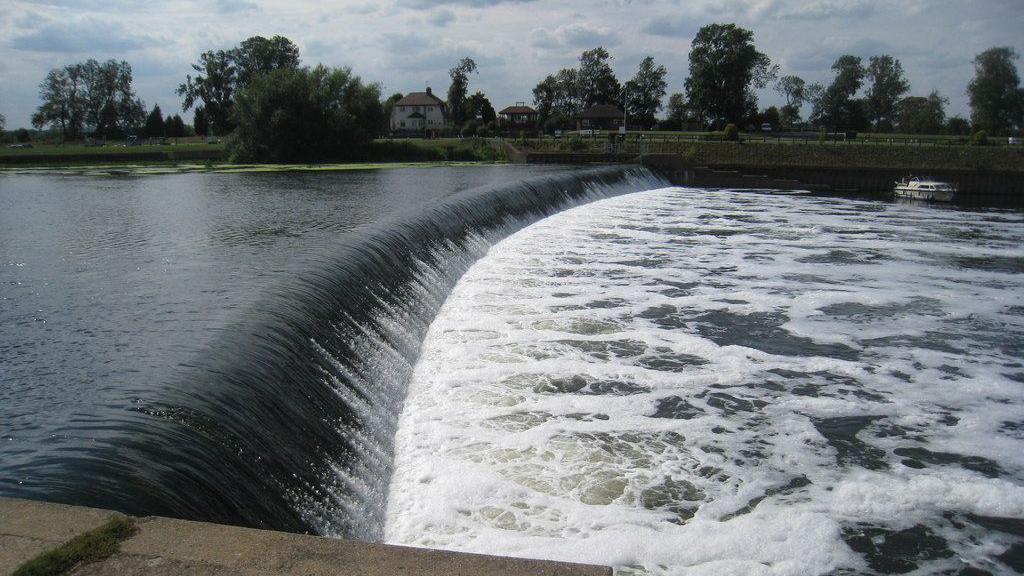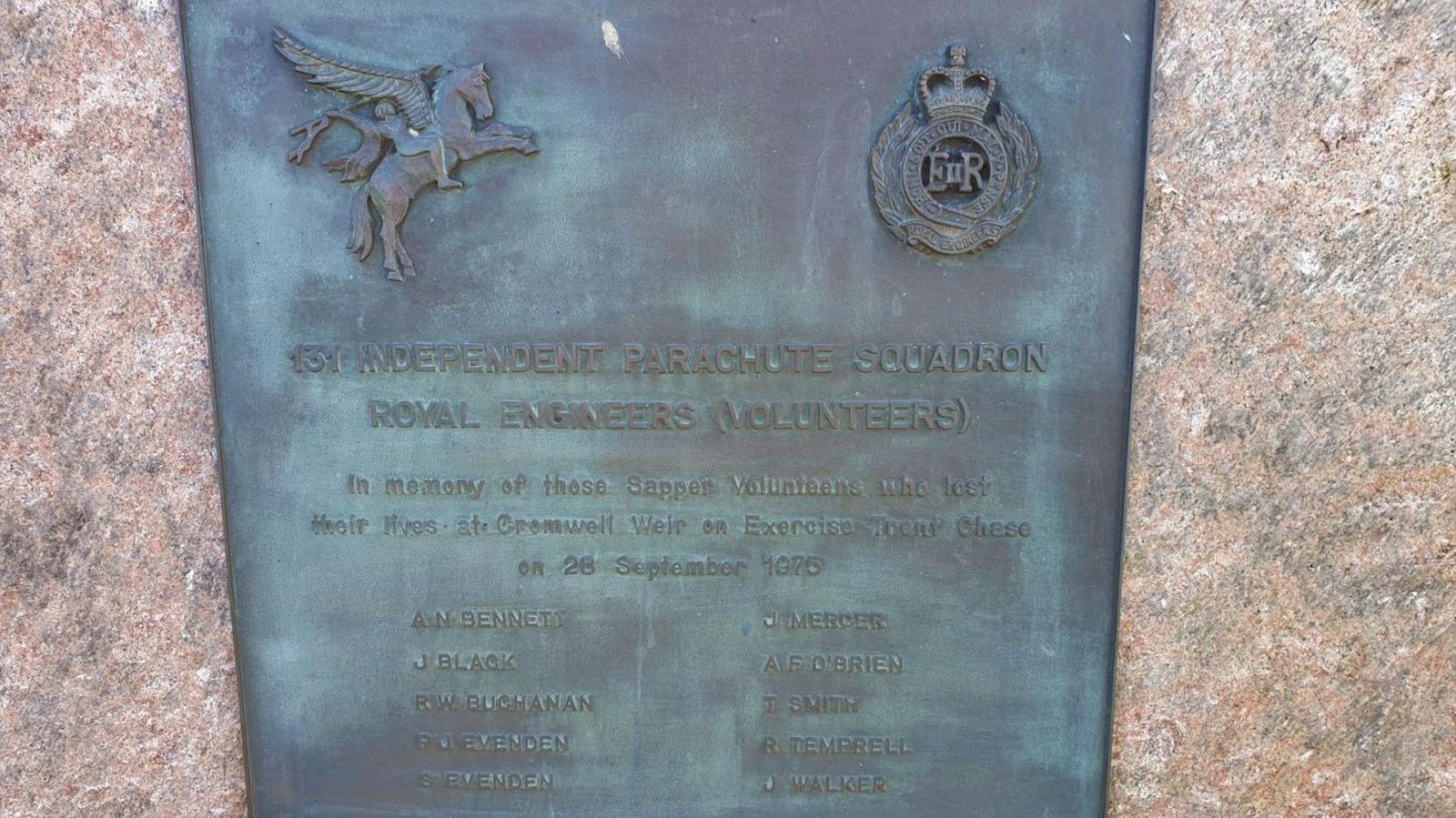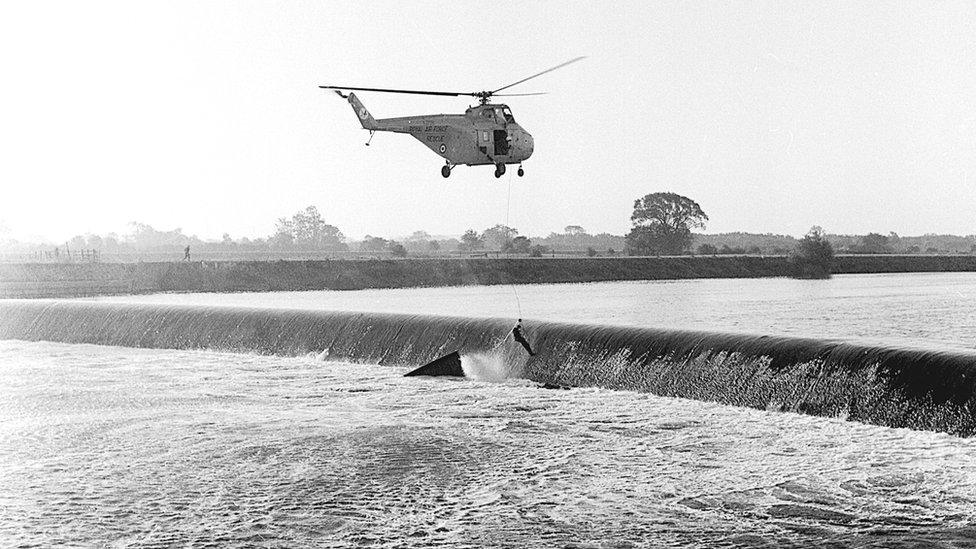Rescuer thought he might die in 1975 weir disaster

David Scott was one of the first police officers at the scene of the Cromwell Weir tragedy
- Published
For police officer David Scott, his night shift on 28 September 1975 started like any other.
The 20-year-old clocked in at the police station in Newark, Nottinghamshire, at 22:00 and then set off on patrol around the town.
But just six hours later he was in a rowing boat with three of his colleagues, battling against the current of the River Trent after being called to the aid of a group of young soldiers whose boat had gone over at Cromwell Weir.
"I can't remember what I was thinking," said Mr Scott. "Just that there was gallons of water hitting me of the back of the head and that I might die."
The Royal Engineers regiment sappers, of Grangemouth, Falkirk, were on a night-time exercise when the vessel capsized.
Ten of the 11 volunteer soldiers died, in what remains the 131 Independent Parachute Squadron's largest peacetime tragedy.
A memorial service to mark the 50th anniversary of the disaster will take place at Cromwell Lock on Sunday.

An RAF helicopter was involved in the recovery operation
The sappers had been taking part in the Trent Chase, an 80-mile night exercise from Stoke to Hull, when they unwittingly went over the weir.
Known locally as the Devil's Cauldron, it is one of the biggest weirs on the River Trent and marks where it turns tidal.
The-then PC Scott was among the first group of officers - along with PC Albert Walker, PC Mick Bostock and Sgt Dave Goodwin - to arrive at the scene.
"We just grabbed a row boat that belonged to the lock keeper," said Mr Scott.
"We paddled out of the lock and turned out into the weir and, at that point, I realised how big it was.
"I can picture the cold wind, the noise, the water bubbling around us."

Cromwell Weir is one of the biggest on the River Trent
Mr Scott, who is now 70, said the roar of the water made it hard to hear any cries for help.
"We could barely hear the sound of a voice, and then all of a sudden a boat hull came out of the water in front of us, with people attached to it," he added.
"One man was alive and clinging to it, utterly terrified, but the rest kept getting pulled into the water."
The retired police inspector, who now lives in Cornwall, said he and his colleagues did everything they could to try and save their lives.
"You just go into autopilot," he added.
"I went into the water two or three times, I sliced through my thumb with a knife and couldn't feel it, and I even tore my stomach muscles and gave myself a hernia."
After two hours in the river, the rescue crew were forced to turn back.

A memorial with all the names of the soldiers can be found at Cromwell Lock
Sapper Pat Harkin was the only survivor. He died in November 2012.
Those who died were:
Sapper Raymond Buchanan, 20
Sapper Norman Bennet, 20
Sapper James Black, 18
Sapper Stuart Evenden, 22
Sapper Pete Evenden, 19
Sapper Ian Mercer, 17
Sapper Alexander O'Brien, 18
Sapper Terry Smith, 20
Sapper Ronald Temprell, 26
Sapper Joseph Walker, 21
Commandos from Birmingham, Plymouth and Scotland are set to attend the memorial on Sunday, which is due to start at 11:00 BST.
Get in touch
Tell us which stories we should cover in Nottingham
Follow BBC Nottingham on Facebook, external, on X, external, or on Instagram, external. Send your story ideas to eastmidsnews@bbc.co.uk, external or via WhatsApp, external on 0808 100 2210.
Related topics
- Published27 September 2015
